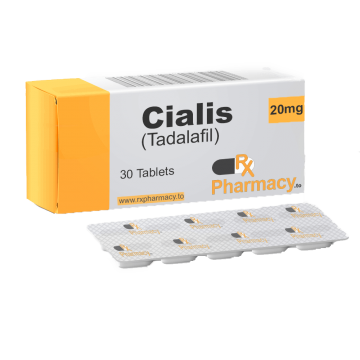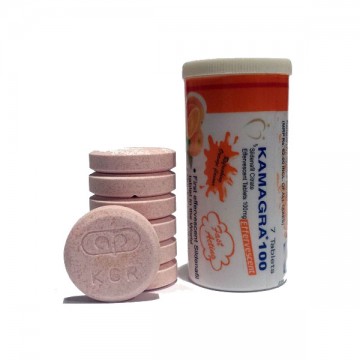Atarax
€18.00
Atarax (Hydroxyzin)
Synonyms: Hydrux, Oltrax, Alamon, Atara, Ataraxoid, Atarox, Atazina, Aterax, Deinait, Durrax
Atarax (Hydroxyzine) is an antihistamine used to treat anxiety, to relieve itching caused by allergic conditions, and to cause drowsiness. It may also be used to treat other conditions as determined by your doctor.
Brand name: Atarax
Generic name: Hydroxyzin
What is the most important information I should know about Atarax?
- Use caution when driving, operating machinery, or performing other hazardous activities. Atarax may cause dizziness or drowsiness. If you experience dizziness or drowsiness, avoid these activities.
- Use alcohol cautiously. Alcohol may increase drowsiness and dizziness while you are taking Atarax.
What is Atarax?
- Atarax depresses activity in the central nervous system (brain and spinal cord), which causes relaxation and relief from anxiety. Therefore, Atarax is used to treat anxiety disorders and tension in stressful situations — before surgery, for example.
- Atarax may also increase the effects of other medicines, such as pain relievers and sedatives, so it is useful after surgery also.
- Atarax is also an antihistamine. It blocks the effects of the naturally occurring chemical histamine in your body. This makes Atarax useful for treating allergic conditions, especially those that involve the skin, such as hives, itching, and rashes.
- Atarax may also be used for purposes other than those listed in this medication guide.
Who should not take Atarax?
- Before taking Atarax, tell your doctor if you have any other medical conditions, especially heart, liver, or kidney disease. You may require a lower dose or special monitoring during Atarax therapy if you have any other medical conditions.
- It is not known whether Atarax will harm an unborn baby. Do not take Atarax without first talking to your doctor if you are pregnant.
- It is also not known whether Atarax passes into breast milk. Do not take Atarax without first talking to your doctor if you are breast-feeding a baby.
- If you are over 60 years of age, you may be more likely to experience side effects from Atarax. You may require a lower dose of this medication.
How should I take Atarax?
- Take Atarax exactly as directed by your doctor. If you do not understand these directions, ask your pharmacist, nurse, or doctor to explain them to you.
- Take each dose with a full glass of water.
- To ensure that you get a correct dose, measure the syrup form of Atarax with a special dose-measuring spoon or cup, not with a regular tablespoon. If you do not have a dose-measuring device, ask your pharmacist where you can get one.
- Store Atarax at room temperature away from moisture and heat.
What happens if I miss a dose?
- Take the missed dose as soon as you remember. However, if it is almost time for your next dose, skip the missed dose and take only your next regularly scheduled dose. Do not take a double dose of this medication unless otherwise directed by your doctor.
What happens if I overdose?
- Seek emergency medical attention.
- Symptoms of a Atarax overdose include extreme drowsiness, nausea, vomiting, seizures, hallucinations, and decreased breathing.
What should I avoid while taking Atarax?
- Use caution when driving, operating machinery, or performing other hazardous activities. Atarax may cause dizziness or drowsiness. If you experience dizziness or drowsiness, avoid these activities.
- Use alcohol cautiously. Alcohol may increase drowsiness and dizziness while you are taking Atarax.
What are the possible side effects of Atarax?
- Stop taking Atarax and seek emergency medical attention if you experience an allergic reaction (difficulty breathing; closing of your throat; swelling of your lips, tongue, or face; or hives).
- Other, less serious side effects may be more likely to occur. Continue to take Atarax and talk to your doctor if you experience
o dizziness, drowsiness, sleepiness, or confusion;
o blurred vision or a dry mouth; or
o nausea or vomiting.
- Side effects other than those listed here may also occur. Talk to your doctor about any side effect that seems unusual or that is especially bothersome.
What other drugs will affect Atarax?
- Many drugs may increase the effects of Atarax and lead to heavy sedation. Before taking this medication, tell your doctor if you are taking any of the following drugs:
o other antihistamines, such as brompheniramine (Dimetane, Bromphen, others), chlorpheniramine (Chlor-Trimeton, Teldrin, others), azatadine (Optimine), clemastine (Tavist), and many others;
o narcotics (pain killers) such as meperidine (Demerol), morphine (MS Contin, MSIR, others), propoxyphene (Darvon, Darvocet), hydrocodone (Lorcet, Vicodin), oxycodone (Percocet, Percodan), fentanyl (Duragesic), and codeine (Fiorinal, Fioricet, Tylenol #3, others);
o sedatives such as phenobarbital (Solfoton, Luminal), amobarbital (Amytal), and secobarbital (Seconal);
o phenothiazines such as chlorpromazine (Thorazine), fluphenazine (Prolixin), mesoridazine (Serentil), perphenazine (Trilafon), prochlorperazine (Compazine), thioridazine (Mellaril), and trifluoperazine (Stelazine); or
o antidepressants such as amitriptyline (Elavil), doxepin (Sinequan), imipramine (Tofranil), nortriptyline (Pamelor), fluoxetine (Prozac), paroxetine (Paxil), sertraline (Zoloft), phenelzine (Nardil), and tranylcypromine (Parnate).
- Drugs other than those listed here may also interact with Atarax. Talk to your doctor and pharmacist before taking any prescription or over-the-counter medicines.




















